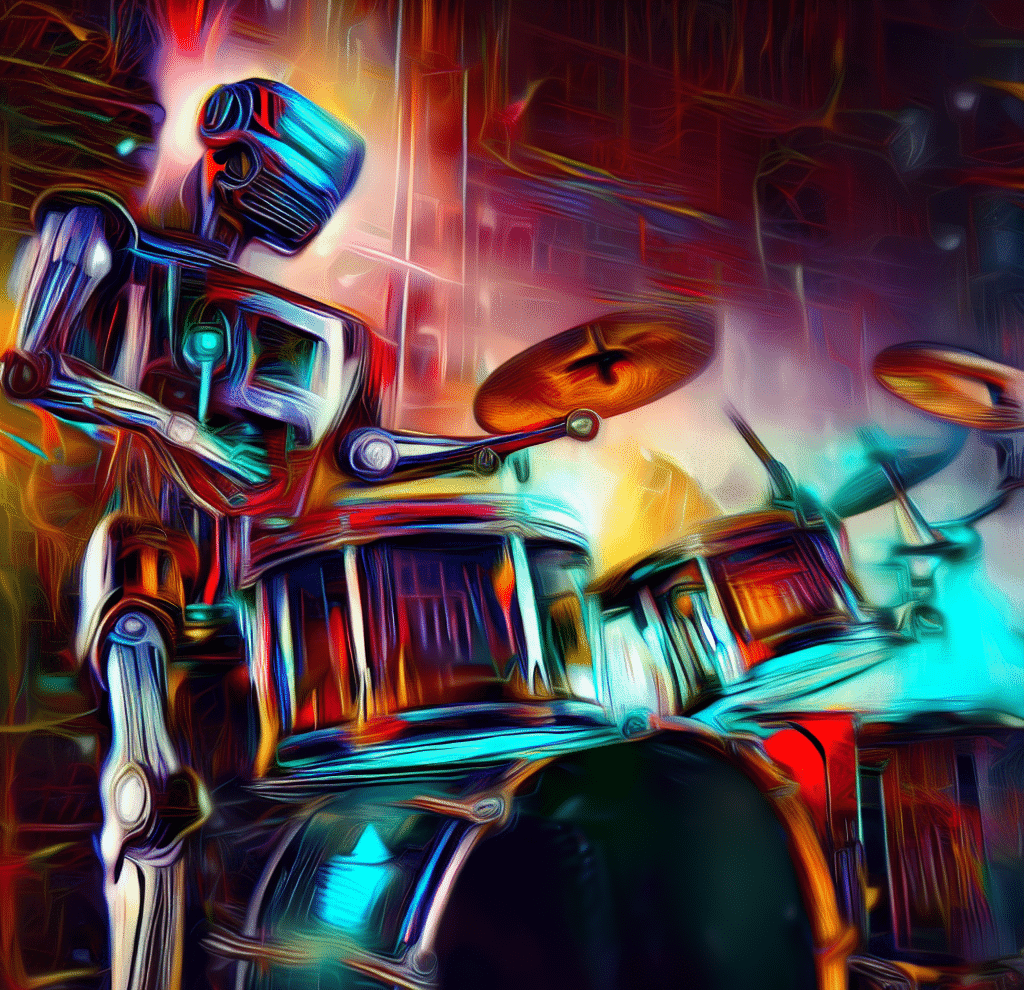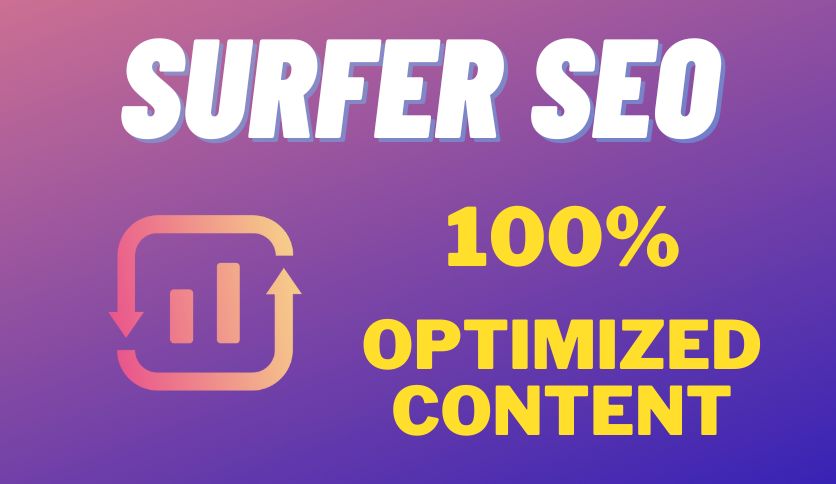AI has officially turn out to be a sizzling subject in the music planet.
I indicate, it can generate songs that sound practically identical to billboard artists.
These AI-created tunes have been raising concerns about the legalities of making use of engineering to make music. A latest illustration involves an AI-designed song that sounds eerily equivalent like Drake and The Weeknd.
If you have been fortunate ample to hear it, you might’ve believed it was rather amazing. I will not website link it right here, but it was all more than Twitter for a couple of days.
Even if you weren’t a fan of the lyrics, you cannot say it was not awesome. It is the start off of one thing that does not display any indications of stopping anytime quickly.
The increasing trend of AI music has sparked debates about its influence on the sector, from legal considerations to artistic high quality. A single significant concern is how to safeguard artists’ rights to make confident their perform is not copied without having permission.
How does copyright perform for someones voice? I indicate, some of the songs sound terrifyingly precise.
Anybody that does a small bit of study could use AI to overlay any lyrics they select on prime of their favourite artists’ voice.
But what do you do when when algorithms commence to steal the display?
AI-created Songs Infiltrating Streaming Companies
Songs designed with AI have previously commenced to make their way onto streaming platforms like Spotify.
The takeover is not just occurring with well-liked songs. These mysterious tracks frequently sound eerily equivalent in spite of obtaining various titles, artists, and cover artwork.
A single curious situation comes from a Spotify consumer named Adam Faze, who took to Twitter right after noticing that the platform advisable several songs with close to-identical audio but entirely various artist names and other information.
He compiled 49 of these tracks into a playlist, highlighting this peculiar phenomenon.
This increasing trend of discovering AI-created music on streaming solutions has left customers puzzled about who or what is behind their creation & how these songs control to uncover their into recommendation algorithms.
Some severe concerns come up relating to the position of streaming platforms in internet hosting AI-created content material.
As AI-created music continues to infiltrate streaming solutions, considerations are mounting more than the implications for each the artists and the platforms.
Numerous wonder no matter whether streaming solutions must be held accountable for internet hosting AI-created content material that possibly infringes on copyright or dilutes artistic integrity.
The lack of clear legal tips surrounding AI-created music even more complicates issues, raising concerns about how platforms can make certain they are supplying an genuine and honest listening expertise for their customers.
The music sector and streaming platforms will require to perform with each other to create a framework that addresses these ethical, legal, and artistic difficulties in purchase to keep believe in and transparency in the swiftly evolving digital music landscape.
The Legalities Behind AI Music
The AI-created Drake and Weeknd song, “Heart on My Sleeve,” took the web by storm and stirred up tons of concerns surrounding copyright and intellectual house rights.
With the origins of the song nonetheless remaining uncertain, the legal implications turn out to be more and more complicated.
If we presume that the anonymous Ghostwriter did without a doubt use AI to generate the song, many concerns come up.
Did they violate the rights of publicity for Drake and The Weeknd by making use of their names, likenesses, and voices? And if the song actually is AI-created, who controls the rights to it and who must be paid for its use on streaming platforms?
And how can conventional, human-created music compete with AI-created songs that are faster and more affordable to make?
In an try to unravel this difficult predicament, Chris Mammen, a companion at Womble Bond Dickinson answered some questions.
Mammen commenced by evaluating the AI-created song with its non-AI counterpart. If somebody have been to generate an authentic composition that sounded like Drake and The Weeknd without having making use of AI resources, the legal implications would rely on how the song was presented.
If it was falsely advertised as an genuine Drake and The Weeknd collaboration, there would be important problems. Nonetheless, if it was plainly labeled as a tribute, the legal ramifications turn out to be much less clear.
Returning to the AI-created song situation, Mammen mentioned that the TikTok submit was ambiguous in its presentation, someplace amongst a tribute and an genuine collaboration.
This adds to the complexity of the legal concerns surrounding the song and how it trades on the names, photographs, and likenesses of established artists.
As AI-created music turns into a lot more prevalent, the legal landscape will require to adapt to deal with the distinctive difficulties and concerns it presents.
The situation of “Heart on My Sleeve” serves as a prime illustration of how the intersection of music, AI, and intellectual house law is turning out to be more and more complicated, and it is a get in touch with to action for the legal and music industries to create clear tips and protections for all events concerned. It is a bit of a mess. When AI enters the equation, the legal landscape turns into even murkier.
If the AI was educated on Drake’s music, the query of honest use comes into perform. Honest use permits the use of copyrighted materials for specific functions this kind of as training, commentary, and parody.
In the situation of AI-created music, the AI requires in education information, analyzes it, and generates new outputs. The debate then centers on no matter whether making use of copyrighted materials as education information is deemed honest use or not.
Many lawsuits are at the moment underway, focusing on the use of copyrighted materials in AI education information.
These situations will be instrumental in setting precedents for conditions like Ghostwriter’s. Based on the final result of these lawsuits, creators like Ghostwriter may possibly both be protected or deterred from pursuing equivalent endeavors.
If Universal Music Group have been to consider legal action towards Ghostwriter, likely claims would revolve close to copyright and honest use, as effectively as rights of publicity surrounding the publication of the resulting perform. The situation would very likely be analyzed in the context of present laws regarding tribute bands and cover bands.
The query of no matter whether creating someone’s voice via AI and making use of it in a song constitutes a violation of their rights of publicity is nonetheless becoming debated. Impressionists, for illustration, can make a residing sounding like celebrities without having infringing on their rights.
AI-created voices fall someplace in-amongst, and the existing target is on the use of education information. Nonetheless, other concerns may possibly come up, this kind of as no matter whether creating a voice that sounds like Drake without having making use of his music as education information would nonetheless be deemed problematic.
In the present lawsuits, AI platforms that ingested and utilized the education information to train algorithms are named as defendants rather than person customers. If Ghostwriter have been to be sued, the platform they utilized to generate the song could possibly be brought into the lawsuit.
If Universal chooses not to consider legal action, Ghostwriter could possibly sue Universal and streaming platforms, arguing that they did not violate anyone’s copyright and that the song must be re-uploaded. Nonetheless, this situation raises complicated concerns close to honest use, industrial use, and commentary, creating the final result uncertain.
In the long run, the Ghostwriter situation highlights the complicated and evolving legal landscape surrounding AI-created music. The outcomes of pending lawsuits and potential situations will perform a important position in shaping the tips and protections for all events concerned in this emerging area.
If it really is not deemed industrial use, then it may be tougher to make a situation for copyright infringement or other associated claims.
Nonetheless, the situation of AI-created music and its implications on the music sector goes past just creating income. It also brings up concerns about creativity, artistic expression, and the worth of human-created performs. As we have noticed, the legal framework surrounding AI and intellectual house is nonetheless evolving, and the solutions to these concerns may not be clear-minimize.
Even if no one particular is creating income from a specific AI-created song, it could nonetheless have an influence on the music sector as a entire, possibly top to alterations in enterprise designs and how artists are compensated. This may prompt legal battles and debates amongst different stakeholders in the sector, as they consider to navigate this complicated and swiftly evolving landscape.
In the long run, the conversation close to AI-created music and the law will proceed, with different perspectives and interests shaping the outcomes.
As situations make their way via the courts and new insights emerge, the legal landscape will very likely shift and adapt to accommodate these new technologies and the distinctive difficulties they current. Nonetheless, this procedure may possibly consider time, and the law will usually be relatively behind the tempo of technological developments.
In the meantime, artists, creators, and the broader music sector will require to grapple with the implications of AI-created music and its spot inside of the legal framework.
So What is Subsequent for Artificial Music?
AI and music are blending with each other in approaches we could not have imagined, and it really is sparking up a fire that is about to blow up. The “Heart on My Sleeve” predicament is just the tip of the iceberg.
We cannot assist but wonder, how will the laws adapt to all these AI-driven tunes? And what thoughts-blowing, out-of-the-box things may come about when AI and music preserve jamming with each other in the potential?
Think about a planet in which AI-created songs prime the charts, collabs amongst artists and algorithms turn out to be the norm, and musical variations we have in no way heard just before emerge.
It is all attainable, but what does that indicate for the sector, artists, and listeners alike? Will AI assist us push the boundaries of imaginative expression or just muddy the waters? And most importantly, how will our laws and rights evolve to preserve up with this swiftly altering landscape?
It is a wild trip, and we’re all strapped in for a fascinating journey. The subsequent couple of many years are going to be incredibly fascinating.




